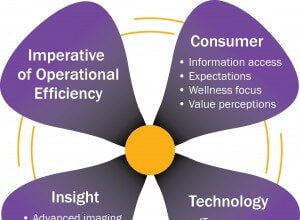Defining Healthcare Quality
When it comes to defining healthcare quality, the opinion of the patients might be the most important of all. They are, after all, the ones on the receiving end of care.
Defining Healthcare Quality
When it comes to defining healthcare quality, the opinion of the patients might be the most important of all. They are, after all, the ones on the receiving end of care. When you strip away the financial concerns, the administrative politics and all the other things that make healthcare a business, we remember that the end is that we will provide care to patients in need. Their experience of that care, when quantified, can give providers and hospitals a baseline evaluation of their strengths and weaknesses as a healthcare organization.
Healthcare Quality | Meaning
For a patient who is receiving healthcare, the idea of quality might be personal and unique to each patient’s encounter with the healthcare system. Furthermore, for that same patient, the definition of healthcare quality might be different for each healthcare encounter: healthcare quality in terms of a routine check-up might look different than quality in terms of a colonoscopy.
For one, a routine check-up wouldn’t be nearly as invasive for a patient than a colonoscopy. It also would not take as long, involve sedation, or have any specific instructions about driving home. When a patient is having a routine office visit with their doctor, they may gauge quality based on the follow quantifiers:
- Communication: Did they feel the conversation about their health with their doctor was provider? Were their questions answered?
- Time: Did they feel rushed? Was the doctor late? How long did it take them to get an appointment with the office?
- Medications: Did their doctor ask about their medications? Were any new medications prescribed? Did the doctor talk about any side effects, give specific instructions? Does the patient know whom to call to refill a Rx?
When a patient has a procedure, they will have some different concerns about their care than they would in the doctor’s office alone.
- Sedation: A big concern, especially during a colonoscopy, is how comfortable the patient is able to be during the course of treatment. Are medications available? Was the prep explained and successful for them?
- Going Home: What does the patient need to know about going home after the procedure? Were they told to bring someone to drive them home? Do they know where to go to get Rx’s filled? How long before they can return to their normal activities?
- Procedure Results: Does the patient understand the outcome of the procedure? Were the results shared in a timely manner and was indicated follow-up explained in terms the patient was comfortable with and could understand? Were they warned of “what to watch for” in terms of symptoms of a possible complication?
Healthcare Quality: Measurements
These are, of course, just a few examples. If physicians and hospitals want to stay on top of whether or not they are meeting the patient expectations and needs, there is one specific survey that can offer crucial data: The Hospital Consumer Assessment of Healthcare Providers an Systems (HCAHPS). The HCAHPS (say it: “H-Caps”) is the first nationwide, standardized survey that charts how patients feel about their healthcare experience.
The HCAHPS track three major goals:
1. Produce data that can provide meaningful, quantitative comparison among healthcare systems within the same regional area, as well as topics that matter to the consumers.
2. Since the results are shared publicly, it serves as an incentive for hospitals to improve measures they have done poorly in, as it will no doubt influence patients to choose other services instead.
3. Similarly, this public reporting encourages (almost demands, in fact) accountability on the part of healthcare organizations when it comes to quality.
The survey is 27 questions long and is given to patients who have recently been discharged from an inpatient stay. It asks them questions about:
- Communication with providers,
- Responsiveness of staff to their needs,
- The cleanliness and quietness of the environment,
- How well their pain was managed,
- How well they were educated and informed about medications and options for treatment as well as any instructions upon discharge,
- And their overall impression of the hospital: for example, would they recommend it to family and friends?
Upon receiving the results of the HCAHPS, the hospital is tasked with evaluating their workflows and making changes to improve their next round of HCAHPS, but more importantly, improve areas of weakness and dissatisfaction for patients.
The hospital’s response and responsibilities to the survey are an entirely different can of worms. We’ll tackle that in our next and final installment of the series on quality.










